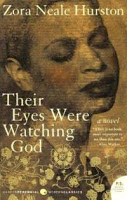 |
| Werewolf erotica: Too sexy for prisoners? Image from The Atlantic Wire. |
‘Werewolf erotica’ too ‘sexy’?
Censoring what prisoners read
The truth is that prisons want to control behavior. They want to ‘reform’ prisoners, which usually means they want to turn out people who are as conformist as possible.
By Jean Trounstine | The Rag Blog | June 25, 2013
Some astute judges are standing up and challenging prisons which think they have the right to tell prisoners what they can and cannot read.
Just after I wrote a blog about the wonders of Changing Lives Through Literature, a program begun in Massachusetts where a judge, probation officer, and facilitator discuss books together in a “democratic” reading group, offering those on probation a chance at rehabilitation (see “What You Need to Know About Changing Lives Through Literature“), I came across an article at the Christian Science Monitor (CSM) titled “Should prison inmates be allowed to read whatever they choose?”
We know prisons only let in certain kinds of material, sent in certain packages and provided in certain formats. At least that is what Framingham Women’s Prison told me some years ago when they rejected my hardback book Shakespeare Behind Bars being housed in the prison library. Forget that I had worked there, directing plays and teaching college classes for almost 10 years. They also don’t want books critical of their practices in any way. Apparently, my book raised their hackles.
Now prisons are going even farther: they don’t want books that have subjects someone deems unfit.
 |
| Madden work ‘Problematic’? |
Husna Haq, in his CSM, article mentions that recently the 1st District Court of Appeal in San Francisco overturned a previous ruling barring a prisoner from receiving a book he requested deemed “problematic” by prison officials. The book in question was The Silver Crown by Mathilde Madden “which has widely become known as ‘werewolf erotica,’ and was considered too sexual by corrections officers.”
What? Corrections Officers are deciding that a book is too sexual for prisoners to read?
Get a load of this other recent news article posted in Business Insider. Called “America’s Prison Guards Are The ‘Ugly Stepchildren’ Of The Criminal Justice System,” the article reveals how guards “allegedly snuck cell phones and other contraband to Black Guerrilla Family (BGF) prison gangsters.” They allowed them to do whatever they wanted apparently, having the run of the prison, and now BGF leader Tavon White is accused of impregnating four guards, two of whom got tattoos with his name.
Thankfully, as Salon reported, the Court found that the prison had overstepped its bounds in the case, engaging in an “arbitrary and capricious application of the regulation.” The judge declared that “The Silver Crown did not meet the famous ‘three-pronged’ standard by which American courts have determined obscenity since the Supreme Court of the United States’ decision on Miller v. California in 1973.”
A 2011 suit by the American Civil Liberties Union charged a South Carolina prison with denying its prisoners all reading material other than the Bible. Other cases include an Alabama prison that barred a prisoner from reading the Pulitzer Prize-winning Slavery by Another Name: The Re-Enslavement of Black Americans From the Civil War to World War II by Douglas Blackmon.
 |
| Hurston ‘too racial’? |
Why? Because it was too controversial? That’s another problem prisons have with texts. And also what I was told at Framingham, when I wanted to teach a June Jordan essay and direct a version of Zora Neale Hurston’s Their Eyes Were Watching God. Way before Oprah produced a movie of this novel, I had planned a production. But the prison said that involving my theatre troupe in such an effort was “too racial.” And I quote.
The truth is that prisons want to control behavior. They want to “reform” prisoners, which usually means they want to turn out people who are as conformist as possible. Read, write, paint, and draw? Only as long as prisoners don’t overstep their boundaries.
The idea that a prisoner can’t vote, can’t write, and can’t read what he or she wants are different kinds of “crime against person.” Restricting such freedoms could be considered unconstitutional if not illegal. But the idea that a prison will ever honor such rights for prisoners without a judge intervening — considering that a prison’s aim is to “correct” — is pure illusion.
[Jean Trounstine is an author/editor of five published books and many articles, professor at Middlesex Community College in Massachusetts, and a prison activist. For 10 years, she worked at Framingham Women’s Prison and directed eight plays, publishing Shakespeare Behind Bars: The Power of Drama in a Women’s Prison about that work. She blogs for Boston Magazine and takes apart the criminal justice system brick by brick at jeantrounstine.com where she blogs weekly at “Justice with Jean.” Find her contributions to The Rag Blog here.]

















